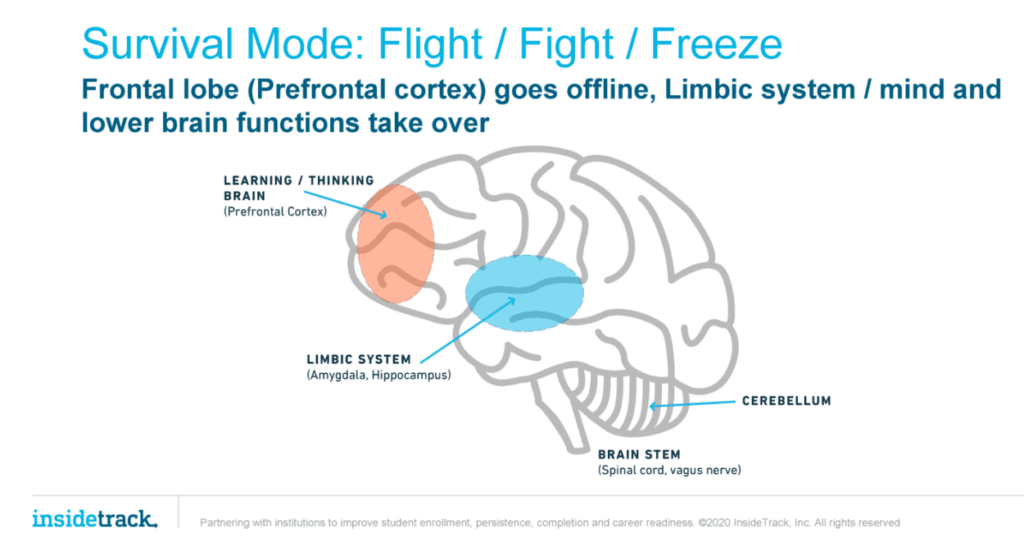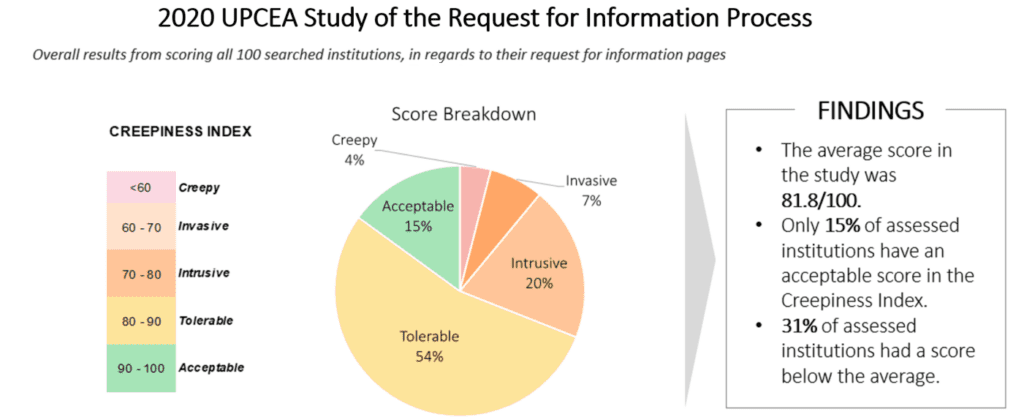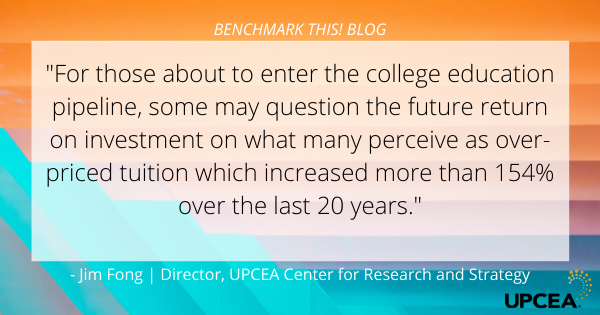A Generational Redefinition of Higher Education, Post-COVID-19
Older Gen Zers (often called the “iGeneration”) may be a deciding factor in not only the upcoming presidential and congressional elections, but also in what higher education will look like in the future, post-COVID-19. Generation Z is typically defined as individuals born between 1995 and 2005, are roughly between 14 and 24 years of age, and about 52[i] to 60[ii] million strong. A subsegment of this group is called the iGeneration, about 32 million individuals who will be 18 to 24 years of age by November 3, 2020—16 million more than the last presidential election in 2016. During the same time, we sadly saw a loss of approximately 5 million Baby Boomers. Depending on voter participation and the Electoral College, the iGeneration segment of Generation Z is likely to play a major role in deciding the leadership of the United States including the makeup of the Senate and House of Representatives. While Boomers have a higher voter participation rate than Millennials and Z’ers, the numbers have shifted and the impact of COVID-19 may influence in-person, as well as absentee and early, voting. The iGeneration will be a force to be reckoned with post-COVID-19 and may define their influence as a result of the upcoming election. Their power post-election will likely also redefine many qualities of higher education.
Many in the scientific community suggest that we may see a second wave of COVID-19 cases this fall. Many campuses are making plans or decisions whether to have campus-based education or move fully online. Many Spring 2020 students have endured the quick migration of courses to remote delivery and at times are questioning the quality. Some have resorted to legal channels to either seek refunds or compensation for the unplanned shift. The iGeneration is finding its voice. Graduates of the college class of 2020 will enter a period of economic uncertainty and high unemployment. Some will question the value of their degree-based educational investment.
“This generation has weathered multiple crises during their lifetimes. Gen Z students will be looking for solutions to help them survive economic hardship, underemployment or unemployment, and the lack of marketable skills. PCO units must be prepared to provide the skills and credentials Gen Z needs to adapt to their ever-changing future.”
Vickie Cook, Executive Director, Online, Professional, and Engaged Learning at University of Illinois Springfield.
 Regardless of whether these are current college or high school students, they are likely to adopt either a fight, flight or freeze approach from traditional higher education, according to InsideTrack and Strada Education.[iii] For those about to enter the college education pipeline, some may question the future return on investment on what many perceive as over-priced tuition which increased more than 154% over the last 20 years.[iv] As a result, the likely audiences will react to higher education differently post-COVID19 with implications to professional, continuing and online education (PCO) units:
Regardless of whether these are current college or high school students, they are likely to adopt either a fight, flight or freeze approach from traditional higher education, according to InsideTrack and Strada Education.[iii] For those about to enter the college education pipeline, some may question the future return on investment on what many perceive as over-priced tuition which increased more than 154% over the last 20 years.[iv] As a result, the likely audiences will react to higher education differently post-COVID19 with implications to professional, continuing and online education (PCO) units:
- High school graduates, Class of 2020: This segment of society is far along the decision-making process and they face uncertainty. As a result, the following paths are likely:
- (Fight) Wait-and-see and attend campus, but cautiously. PCO units will play a minor role here but may support campus initiatives should more online options be needed or as a fallback plan should COVID-19 outbreaks occur in the fall.
- (Flight) Wait-and-see and stay closer to home, making lower cost choices nearby and going part-time. PCO units could see these students enter enrollment channels typically designed for part-time learners, degree completers or professionals seeking online degree options.
- (Freeze) The gap-year graduate. This future learner will want to wait for the dust to settle or a new normal is established. Until then, this learner and their parents will be unwilling to consider a potentially shaky investment. For PCO units, this learner could be a source for single enrollments or alternative credentials to keep their mind engaged academically.
- High school graduates in the Class of 2021 and beyond: This future segment has the luxury of an additional year, when cooler heads may prevail and the dust has settled on the economy and the role of higher education. This more informed 18-year-old should benefit from an improved family financial situation and additional information about the pandemic. Hopefully, it will be in the rear-view mirror for them. However, it is likely that signs of a new economy will be evolving and scrutiny will be placed upon institutions of higher education as to whether the degrees these students seek in 2021—and graduate with in 2025—will have sufficient value and shelf-life. This class and the classes that follow will be looking for signs and evidence that their family’s annual investment of over $30,000[v] will be worth it. As a result, two new segments could emerge:
- (Fight) The full-time stay-at-home online student seeking a degree. This 18-to-22 year-old student and their family have been significantly impacted financially. Rather than pay full tuition, board and fees associated with living on campus or near a campus, this learner will seek the best value degree option while saving money by living with their parents. They have greater choices and buying power, despite a potentially more difficult financial situation. This student may present new challenges for the PCO unit as their demands, preferences and personas are different and they carry with them the power of technology, social media and networks of influence. They are more powerful and more likely than other generations to voice their displeasure. For these students entering a PCO inquiry channel, many may be disappointed in their experience and potentially abandon their higher education shopping cart. A recent UPCEA study of 100 institutions found that 15% of PCO units evaluated had an efficient request for information process, often geared toward the iGeneration. Another 54% had processes that were viewed as tolerable, but not necessarily efficient. The remaining 31% were viewed as invasive or downright creepy to iGen’ers.

The findings of this study are important in that iGen’ers will voice their dissatisfaction with their strong peer networks. They will be turned off by an institution’s unnecessary or inappropriate sequencing of questions. - (Flight) The fully non-degreed professional learner. This learner may have started the path of going to college, but now sees fewer assurances and guarantees of employment given what they see as a fast-moving economy. They may also perceive higher education as woefully obsolete for the future. Another learner who may consider this avenue could also be the high school graduate or noncompleter who would not have gone to college anyway, but sees the damage COVID-19 did to the U.S. economy and will seek to be better prepared through badges, certificates and alternative credentials.
- (Fight) The full-time stay-at-home online student seeking a degree. This 18-to-22 year-old student and their family have been significantly impacted financially. Rather than pay full tuition, board and fees associated with living on campus or near a campus, this learner will seek the best value degree option while saving money by living with their parents. They have greater choices and buying power, despite a potentially more difficult financial situation. This student may present new challenges for the PCO unit as their demands, preferences and personas are different and they carry with them the power of technology, social media and networks of influence. They are more powerful and more likely than other generations to voice their displeasure. For these students entering a PCO inquiry channel, many may be disappointed in their experience and potentially abandon their higher education shopping cart. A recent UPCEA study of 100 institutions found that 15% of PCO units evaluated had an efficient request for information process, often geared toward the iGeneration. Another 54% had processes that were viewed as tolerable, but not necessarily efficient. The remaining 31% were viewed as invasive or downright creepy to iGen’ers.
In addition to the iGeneration, many other generations will look at the economy and the role of education differently post-pandemic. These segments could include the following.
- Lost Their Job During the Pandemic. They know that they need to invest in education and training in the future but have little funds. They are most likely a Millennial or Gen X’er who felt secure and does not want to be caught off guard in the future. Strada Education’s “The Public Viewpoint: COVID-19 Work and Education Survey” shows that as of 4/29/2020[vi], 46% of individuals surveyed had lost their job or had their income reduced. Of this group, one-third believe that they need additional education and training to get a comparable job. While the degree market is likely to see a decline in the short term, a high-value alternative credential may be attractive to this segment. Given their financial situation, such noncredit, lower priced offerings may be stronger options for this group. The MOOC market may also have greater appeal for this segment.
- Retained Their Job but Fearful for a Repeat Economy. Similar to the previous segment, this group will look to strengthen their job security. PCO units will likely have the greatest impact through badges and certificates for this audience, most likely Millennials and Gen X’ers. Gen X’ers who are likely to have more disposable income and could potentially afford a degree may explore lower risk and quicker options.
- The New, but Unlucky and Unemployed 2020 College Graduate. They had a job offer, but lost it or had it delayed. Job fairs were cancelled this spring, so when the economy does open up, they will find themselves in competition with dozens, hundreds or thousands of others. Many also did not benefit from a stimulus check, as they were their parents’ dependents and will find themselves living with them again…eerily similar to 2008 Millennial graduates in the financial crisis. For PCO units, this audience may hold potential if they can be convinced to enhance their already existing degrees with “super credentials” to get ahead of others who will be competing for similar jobs. These credentials could be strategic communication, data visualization, Python, Tableau, cybersecurity, social or digital media, etc., or some other skill to build an advantage once the economy recovers. The worst case scenario for this group in the interview process will be not being able to answer a potential employer’s question of “What skills did you acquire or what did you do to better prepare while you were quarantined during the pandemic?”
- Worried for the Future, Lacks a Degree and Lost Their Job.These individuals will seek new ways to prevent this from happening to them again. They will look for education and training to change their trajectories in the future. Many of these individuals may have college credits, and therefore PCO units may see new, restored opportunities in degree completion. Those without college credits may lean toward less costly, quicker noncredit certificates or badges or see stackable credit credentials as attractive en route to a degree. However, both segments are more likely to be financially challenged and will look at debt and investment in education differently. For many, the recent pandemic showed them how vulnerable they were and that the absence of the next paycheck and the inability to quickly access unemployment funding left them exposed.

Higher education will be forever changed. While the degree will likely remain the gold standard in the next decade or two, the power that institutions have has been lessened, shifting more toward the consumer or employer. During the time of self-isolation or quarantining, some learned to learn in a new way, taking online masterclasses, Zoom personal training, or MOOCs. Learning has been redefined through quarantining where consumers, without knowing, have seized more economic power by learning online. They now realize that more learning can be done outside of the sacred ivy walls of higher education.
A new economy will more quickly evolve and be grounded in automation, the care economy, green energy and sustainability, new organizational cultures and new products that need to be brought to new markets[vii]. While higher education overall is likely to suffer in the short-run, PCO units are better positioned to respond—just as they did at the turn of the century when the internet, mobile and cloud economy was fueling online education. These units are used to adapting to change and are comfortable with new technologies. They can scale up and down as needed, understanding sales, marketing and revenue generation. They are able to develop innovative or highly customized ways of learning and can more quickly bridge the gap between employer need and institutional resources. As institutions of higher education plan well beyond the current pandemic and 2020, they need to leverage PCO unit strengths. As author William Gibson best put it, “the future is already here.”[viii]
[i] Estimated from www.knoema.com, World Population Prospects and Pew Research Center findings.
[ii] http://fourhooks.com/marketing/the-generation-guide-millennials-gen-x-y-z-and-baby-boomers-art5910718593
[iii] Pelesh, A., How to Support Students During COVID-19, Strada Education Network, April 19, 2020. https://www.stradaeducation.org/uncategorized/how-to-support-students-during-covid-19/ and https://info.insidetrack.org/students-in-crisis
[iv] U.S. News and World Report, August 19, 2019
[v] Duffin, E., www.statistica.com, May 5, 2020
[vi] The Public Viewpoint: COVID-19 Work and Education Survey, Strada Education Network. April 29, 2020. https://www.stradaeducation.org/publicviewpoint/
[vii] World Economic Forum: Jobs of Tomorrow, Mapping Opportunity in the New Economy. 2019.
[viii] Gibson, W., The Economist. December 4, 2003.
Learn more about UPCEA's expert consultants.
Do you need help with your PCO unit or campus? We can help. Contact UPCEA Research and Consulting for a brief consult. Email [email protected] or call us at 202-659-3130.
Trusted by the nation's top colleges and universities, UPCEA Research and Consulting provides the best value in the industry today. UPCEA's industry experts have years of experience in Online and Professional Continuing education - put them to work for you!
UPCEA Research and Consulting offers a variety of custom research and consulting options through an outcomes-focused pricing model. Find the option(s) that best suit your institution.
Learn more about UPCEA Research & Consulting
The UPCEA Difference
Unmatched Experience: For more than 100 years, UPCEA consultants have exclusively served the needs of online and professional continuing education programs. UPCEA consultants leverage their extensive industry expertise to expedite solutions, anticipate upcoming shifts, and offer distinct best practices, effectively aiding clients in achieving their goals.
Cost Effectiveness: As a nonprofit, member-serving organization, we provide unmatched value, allowing you to maximize limited research and consulting budgets.
Action in Motion: Our cadre of experienced, skilled authorities and expert practitioners propels you forward, translating research and consulting into impactful implementation, a distinctive hallmark of UPCEA. Our team of current and former institutional leaders will support you, turning research and consulting into action.
Mission Alignment: Like you, our mission is to enhance and expand educational opportunities and outcomes for adult and other non-traditional learners. We share your values and work in partnership with you to advance access and excellence in education.
